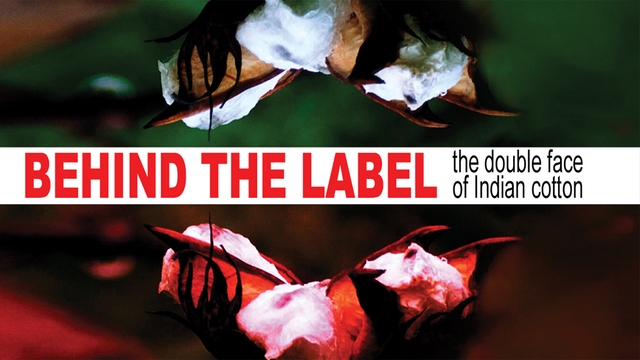Behind the Label
India's blood stained cotton industry
 Around 270,000 Indian cotton farmers have comitted suicide. Why? India has replaced almost all its native varieties of cotton with genetically modified plants. The price of cotton seed has soared from 9 rupees a kilo to a staggering 4,000. We ask growers and seed developer Monsanto if the trade is fair, in a film that cuts to the ugly heart of another staggering tale of GM being forced onto third world markets. A devastating tale of corporate greed.
Around 270,000 Indian cotton farmers have comitted suicide. Why? India has replaced almost all its native varieties of cotton with genetically modified plants. The price of cotton seed has soared from 9 rupees a kilo to a staggering 4,000. We ask growers and seed developer Monsanto if the trade is fair, in a film that cuts to the ugly heart of another staggering tale of GM being forced onto third world markets. A devastating tale of corporate greed.
Since 2002 India has replaced almost all its native varieties with genetically modified seeds - known as BT cotton - containing toxins that destroy pests. The price of cotton seed has soared from 9 rupees a kilo to a staggering 4,000. The cotton farmer's life is a hard one; they treat their crops "like children," since wildlife may destroy them and "man is so dependent on money." Children toil in the fields for less than $2 a day. Monsanto says farmers buy seeds developed with its technology as they have confidence in their yields. But Greenpeace claims GM farmers get into 80% more debt. Farmers blame suppliers when their seed turns out to be sterile: "Everything they said was a lie." Experts examine plants and fail to find male/female parts to them. Monsanto denies its seeds carry a "Terminator" gene but Tiruvadi Jagadisan - former head of Monsanto India - alleges they do: "Introducing genetically modified seeds is murder!" In response to a lack of choice seed banks are springing up. Ram Kalaspurkar was a farmer and engineer and fears the monolithic advance of GM in India: "First they ruined cotton, rice was next. They want to take our food chain into their hands". When several thousand cattle died after eating cotton plants, their intestines were found to be "shrivelled". Molecular biologist Pushpa Bhargava believes the GM toxin killed them, "but nobody wants to do the experiments". Organic cotton is an alternative, as it preserves the "biosphere" and protects wildlife. Organic farmers maintain contact with nature. Organic may offer more incentives to farmers says cotton buyer Mani Chinnaswamy: "Organic is you feed yourself first, then go out and feed the world". Over the past 15 years hundreds of thousands of Indian farmers have killed themselves in desperation, many drinking pesticide. Bereaved families struggle to cope. Yet cotton continues to be paraded on catwalks without reference to the pain felt by many of its producers. It's up to consumers worldwide to buy fair trade: "then the whole world changes". LEARN MORE.
WATCH MORE.
JOIN THE DISCUSSION.





